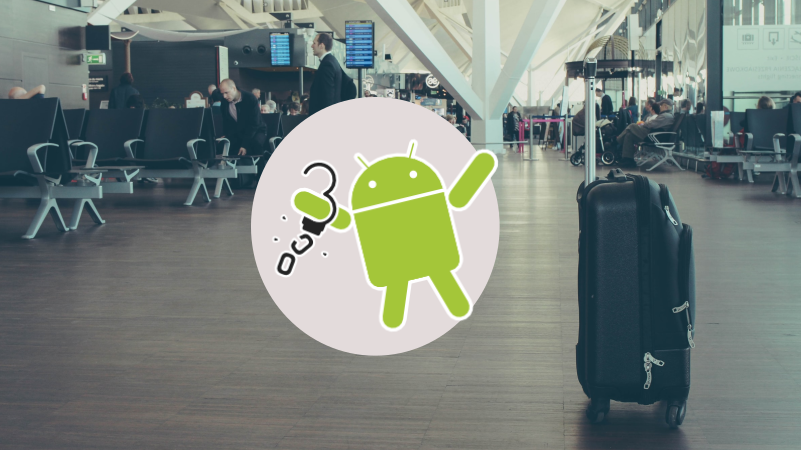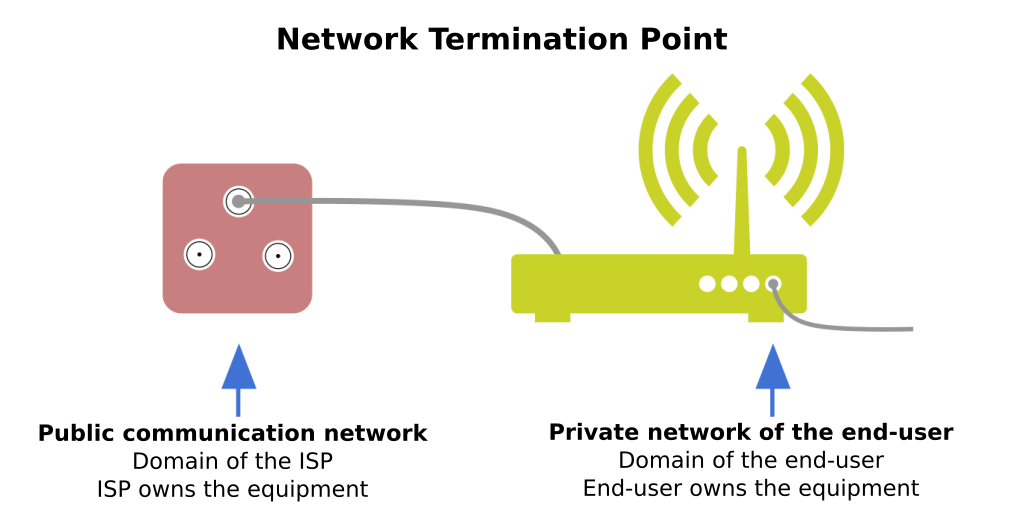Demand for transparent CovPass apps in EU +++ Dutch gain Router Freedom
In our August-September Newsletter, we celebrate the
right of using a custom router in the Netherlands. We explain why
every app that tackles the spread of Covid-19 has to be Free
Software. We share the news of our vibrant community, following
up what happened in the summertime and what lies ahead of us.
CovPass apps should be available to all; thus, they should be Free Software
Apps that are necessary for everyone should be available to
everyone, without having to install additional and proprietary
software stores. This was not the case with the German CovPass
app, which provides the EU digital COVID certificate for Corona
vaccination on smartphones. It was only available on Apple,
Huawai and Google app stores due to proprietary dependencies.
Such a practice neglects those who consciously avoid proprietary
software and choose to use Free Software. For them, the app was
unavailable.

Experts saved the day, and therefore we would like to thank @jugendhacker, @mythsunwind, @rugk, @tzugen, Felix C. Stegerman,
and Marcus Hoffmann. Together, they worked selflessly for weeks
and developed the CovPass app for F-droid. The experts also
removed proprietary Google libraries which were not necessary for
the app to function.
This additional work would not have been necessary if the CovPass
developers - who are paid with public funds - had not included
these unnecessary proprietary libraries from the beginning.
Furthermore, the company developing CovPass was unsupportive
towards external developers, which increased the difficulty for
the volunteers to contribute improvements. Because of this,
improvements which would have required little effort by the
original developers turned out to be a difficult task for
third-party experts. It is a typical problem that can be avoided
by releasing as Free Software any software whose development is
publicly funded.
The same process happened last year with the German Covid-tracing app:
experts voluntarily took over
governments' and administrations' tasks to make this
app available to everyone. In the case of Covid-related apps, public bodies have
failed in Germany. "We urge the government to quickly
adapt its practices and make sure everyone can use such apps
without any restrictions from the start" says Matthias
Kirschner, President of the FSFE. The silver lining in contrast
is the example of Switzerland, where the official Covid
certificate app was added to F-droid by the Federal Office of
Information Technology, Systems and Telecommunication (FOITT).
Advocating pays off: Dutch Internet users gain Router Freedom
Router Freedom is now a reality in the Netherlands. All Internet
Service Providers (ISPs) must allow end-users to
choose and use their own routers and modems within 6 months.
Also, it was secured that consumers who set up an alternative
router should still enjoy technical support by the ISPs. The
Dutch Authority for Consumers and Markets' (ACM) decision
represents a victory for consumers in the Netherlands and a win
for net neutrality in Europe.

The new rules passed after a persistent effort of the FSFE to
draw attention to the importance of Router Freedom. The FSFE
contacted BEREC raising the Router Freedom demand for the first
time three years ago, in 2018, resulting in establishing Router
Freedom as a standard for European countries. In 2019,
the FSFE contacted the Dutch national agency too, to enquire
about the situation in the country. Since then, the FSFE's Country
Team Netherlands pushed the issue through by organising
seminars, talking to stakeholders, going to events, raising the
issue on social media, and helping with the elaboration of
technical and legal documents.
Now, it is the time to celebrate. ACM's decision is a major win for all end-users in the Netherlands!
Do you want to learn more about the status
of Router Freedom in your country? Check our monitoring
map! You can contribute with our work by taking part in our
end-user
survey to help monitoring Router Freedom in your country.
Upcoming events:
On Wednesday 15 September at 20:00 CEST, the Dutch FSFE team
will have its monthly meeting. The Dutch team always welcomes new
members. If you would like to take part in the meeting, please
contact the FSFE Coordinator of the Netherlands, Nico Rikken.
In September's monthly meeting, the FSFE Women group
will discuss gender aspects of learning programming. Research
papers will be briefly presented and discussed. We welcome new
members who identify as females. The date is still to be arranged,
so if you are interested in Free Software join our mailing
list and get to know us.
What we have done:
-
On July 30th, Max Mehl, Programme Manager of the FSFE, gave
an interview in thelocal.de about the disaster warning
system of Germany. The topic came to the spotlight after the
floods in Germany, but the weaknesses of the warning system
were a known issue already. Max argues in favour of
warnings sent through cell broadcast instead of apps,
because they can reach everyone with a phone and target
specific locations. There is also a publicly accessible reprint
available.
-
On August 17th, the FSFE Women group
met and Loria presented how maps are created in a 2D
workadventu.re world.
-
On August 18th, the FSFE Dutch team met to discuss
the end of SMS authentication for DigiD, the efforts to
introduce Free Software in schools, and other technological
developments.
-
On August 22nd at FrOSCon ,
Alexander Sander, FSFE's Policy
Consultant, presented the latest developments in the
digitization of administrations and ventured an outlook for
the time after the federal elections in Germany.

FSFE information stall on Veganmania, Vienna 2021
-
During the last weekend of August, the FSFE Austria participated
in the annual Veganmania summer festival. Next to live music,
street food, and DIY workshops, the Viennese FSFE volunteers team
organised a booth to
explain the basics of Free Software to visitors. The Veganmania
festival is visited by thousands of visitors with diverse
backgrounds. The supporters noticed an increase in how many
people were technically conscious compared to the previous
years. Also, newcomers in the field of Free Software were
interested to read our guides with technical tips to increase
their computer security. Instructions on basic utilities such as
email encryption and password managers gained a lot of attention.
If you are interested to learn more, you can read the report
from the FSFE supporters group in Vienna.
Get active for the Federal election in Germany
On 26 September, a new Bundestag will be elected in Germany. We
are engaged around the election and want to ensure with our
activities that "Public Money? Public Code!" plays an
important role for the next government. Therefore we want to make
sure that our "Public Money? Public Code!" demands will
be included in the coalition agreement of Germany's next
government. To achieve this we need your help and support. You
can learn how you can help us in the dedicated activity
package [DE].
Contribute to our newsletter
If you would like to share any thoughts, pictures, or news, please
send them to us. As always, the address is newsletter@fsfe.org.
We're looking forward to hearing from you! If you also want to
support us and our work, join our community and support us with a
donation or a monthly
contribution. Thanks to our community and all the volunteers,
supporters, and donors who make our work possible. And thanks to
our translators, who enable you to read this newsletter in your
native languages.
Your editor, Fani Partsafyllidou
The biggest financial impact the FSFE faces in these times of
physical distancing is the cancellation of Free Software
conferences, including our own events. To keep the software freedom
movement solid and alive, please consider donating a
part of your conference budget to Free Software organisations,
including the FSFE.
Support FSFE


 FSFE information stall on Veganmania, Vienna 2021
FSFE information stall on Veganmania, Vienna 2021
 Free Your Android
Free Your Android
 Schematic overview of the Network Termination Point (NTP)
Schematic overview of the Network Termination Point (NTP)